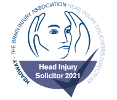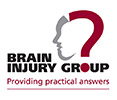Asbestosis – Supporting Larry’s Successful Claim
Asbestosis claims are complex so Larry contacted the Association of Personal Injury Lawyers (APIL) for advice. They recommended Barratts so Larry engaged us to help with his claim. Read more
Mesothelioma Claim after Trevor’s Asbestos Exposure
Our client, Trevor, received a diagnosis of Pleural Plaques in 2012 and asked if we could help with his industrial disease claim. Barratts had been recommended to him by his respiratory physician who suggested he should investigate a claim for compensation. Trevor had a history of working with asbestos throughout his working life as a pipe fitter in power station boilers. Read more
Complex Brain Injury Claim following Workplace Accident
Adam was a freight-checker in a distribution depot. His job involved checking lorry loads of materials before they were despatched, to be stored in the warehouse. On the day of the accident, an unstable load weighing in excess of 1 tonne slid off a lorry. The load crushed Adam and caused him a traumatic brain injury, and catastrophic physical injuries. Read more
Drunk Driver Accident – Compensation for Serious Injuries
Barratts was recommended to Mick when suffered serious and life-threatening injuries after he was hit in a drunk driver accident. He initially contacted an extremely experienced personal injury lawyer in Manchester who was unable to take on Mick’s case. However, the lawyer advised Mick to contact us. Read more
Violent Assault – Gary’s Successful Compensation Claim
Violent assault can leave victims with life-changing injuries. Tragically, Gary experienced this for himself. He contacted our solicitors in early 2017 after he had suffered a brain injury during an assault. One of our previous clients, who had also sustained serious brain injuries in an assault, recommended us to him. Read more
Birth Brain Injury – Barratts Ensure Lifetime Financial Security for the Child
Birth brain injury is often caused by hypoxia and, in Max’s case, he suffered cerebral palsy as a result. Max’s parents felt that his brain injury was caused by medical negligence so they contacted us to enquire about their options. We helped them to ensure their child will be financially secure for life. Read more
TRAUMATIC BRAIN INJURY FOLLOWING A CAR ACCIDENT

My client’s family instructed me to bring a claim against the insurers of a vehicle that had collided with her car whilst she was on holiday in 2017. I didn’t know my client or her family before her accident. However in the years that I have been involved in her case, they have come to mean a lot to me and to the experts that helped with her personal injury claim.
The accident happened when my client was on holiday. She was driving through the countryside with a friend, when a large vehicle pulled out into her path. Sadly, she suffered terrible injuries. These included multiple fractures to her neck and a severe traumatic brain injury. The artery in her neck ruptured, she fractured her ribs, wrist and knee and suffered bleeding in both lungs. My client’s injuries have left her permanently and severely disabled.
WHAT IS A SEVERE TRAUMATIC BRAIN INJURY?
A traumatic brain injury, which lawyers and experts refer to as a “TBI”, happens when a person suffers a blow to the head or penetrating head injury that interferes with the normal function of their brain. A “TBI” can be mild, moderate or severe depending on how badly the brain has been damaged.
People with a severe brain injury can suffer with permanent debilitating symptoms. Just some of these are paralysis, problems with walking, talking, or swallowing, vision problems, and loss of fine motor skills. These can prevent you from carrying out even simple tasks. Clients with TBI can have difficulty remembering relationships, inability to recognise people or things and inability to process their thoughts. This means even making a cup of tea is hard for them. They often have complex clinical needs and require carers to look after them on a day to day basis and keep them safe.
When clients have severe TBI they often need to have adaptations to their home. If this is not possible they need to move to a new home which can be adapted and has room for their carers who often have to be there 24 hours per day.
It is important to remember that brain injury doesn’t just affect the person that has been injured. It is also hugely challenging for their family and loved ones. Living with a loved one with a brain injury requires enormous resilience, flexibility and communication. My client was fortunate in that she was able to live with her daughter who provided and continues to provide amazing support. She also has the support of two other adult children and extended family.
CLAIMING FOR NEGLIGENCE AFTER BRAIN INJURY
The insurers of the other driver admitted liability for the accident. My client’s injury was so severe that she was not able to provide me with instructions in her case or look after her own finances. Instead one of her daughters agreed to act as her “litigation friend”. A litigation friend is someone who can make decisions on behalf of the injured person and is usually a close family member. It is possible to have a professional litigation friend if there are no family members that can help.
To protect my client’s finances, she also needed a person called a “Deputy” to look after her money. A Deputy is a professional appointed by the Court of Protection. This person will look after the compensation both during the claim and beyond settlement. They help to pay for carers, equipment, therapy, and holidays. They also make financial decisions on her behalf with the help of an investment adviser.
WHAT EVIDENCE IS NEEDED?
As a lawyer acting for a client with a brain injury, it was my job to get evidence to prove the extent of her injuries and what that would mean for her in the future. This is called quantum evidence which is needed to support the amount of compensation. Damages are paid to reflect the amount of pain and suffering for a client. They also take account of past expenses and future costs related to their injuries. Working out future needs is complicated. To do this we obtained evidence from various experts including experts in brain injury, accommodation, and care.
It was also vital to get witness statements from my client’s friends and family. Expert reports are an important and necessary part of brining a personal injury claim. However it is the witness evidence that really tells you what your client was like before you met them under such awful circumstances. I took a witness statement from one of my client’s close friends and she painted a picture of a truly beautiful woman, not just in appearance but in her indomitable love of life and all it had to offer. My client was very much a woman who took every opportunity that life threw at her and embraced it with open arms. She loved the outdoors, socialising, music, culture and anything interesting that enhanced her life. She particularly adored spending time with her grandchildren and daughters. She was and is extraordinary.
HOW IS THE COMPENSATION SPENT?
My client’s settlement will contribute to the costs of her care (which she requires 24 hours per day) and to additional private rehabilitation so that she can stay as clinically well as possible. It has also enabled her to make adjustments to her home. The compensation can also provide for items such as a special vehicle so that she can get out more and enjoy the outdoors again.
Compensation for the head injury can in no way give my client and her family back the life they had before. Nevertheless it can help to make her future easier to bear and ensure she has the best quality of life. Getting advice from a specialist personal injury solicitor makes all the difference in cases where a client depends on their compensation for the rest of their lives. This is what makes my job so rewarding. It has been an absolute privilege to resolve this case on behalf of such an amazing woman.
Compensation secured for client after his mother was murdered.
Ed Myers was recommended to the sister of our client because of his specialist criminal injury compensation experience. Sadly our client was only 9 years old when his mother was killed after an unprovoked and violent attack by his father. Read more
Successful appeal against CICA award for brain damage
John (name changed for confidentiality) came to Barratts solicitors in early 2017 after a previous client recommended us to him. Sadly John had become involved in an argument outside a hotel in Nottingham one Friday evening. The next thing John knew he was in intensive care in the Queen’s Medical Centre. Read more
Barratts
Click the below links for details of:
Legal Notices
Terms of Business
Interest Policy
Cookie Policy
Complaints Policy
Barratt Goff & Tomlinson Limited, trading as Barratts Solicitors, are authorised and regulated by the Solicitors Regulation Authority
No. 524015
Copyright Barratt Goff & Tomlinson Limited 2017
Opening Hours
Mo-Th: 9:00-17:00
Fr: 9.00-16.00
Out of hours appointments are also available
Tel: 0115 931 5171









